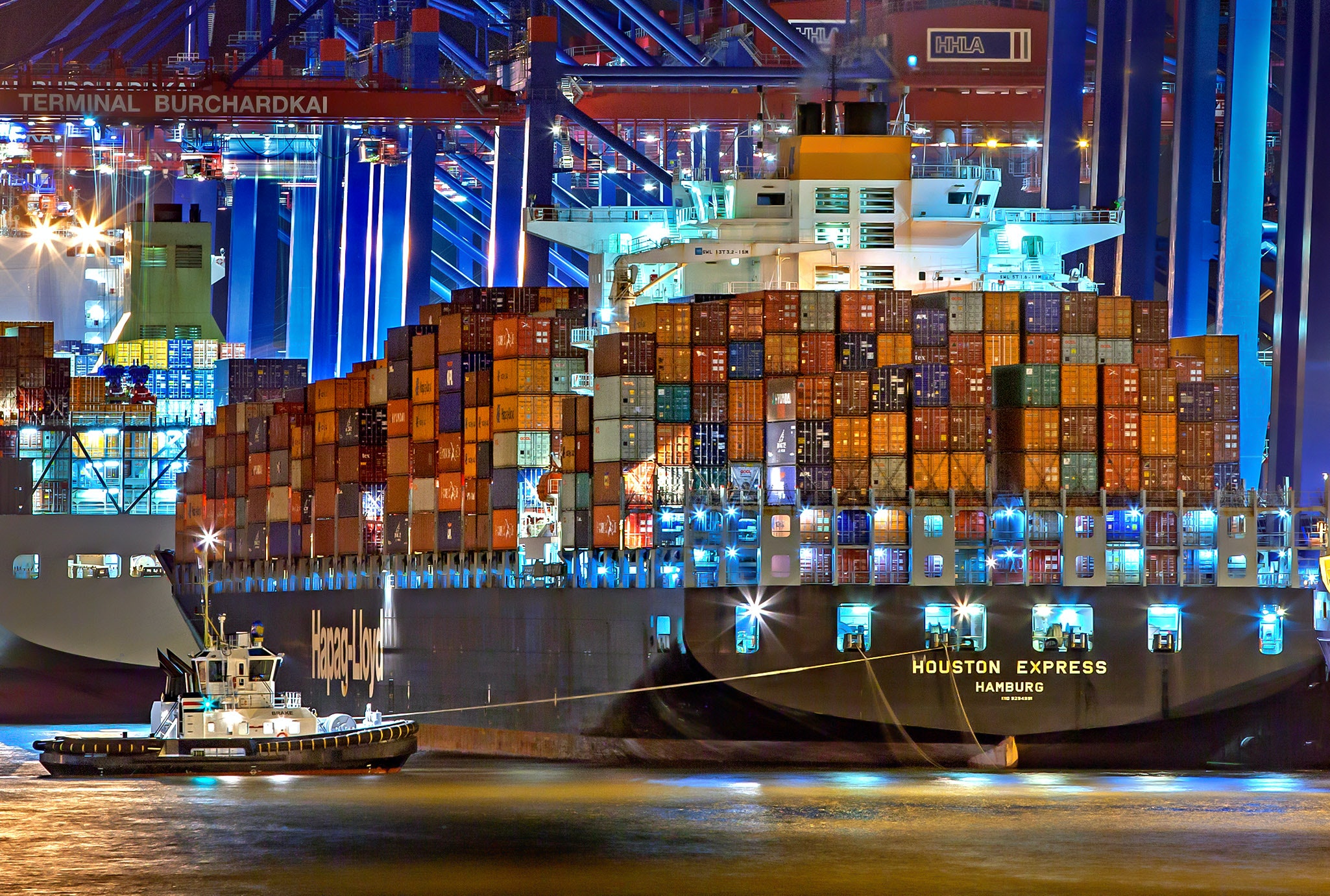The European Deforestation Regulation (EUDR) and FDA Food Safety Modernization Act (FSMA) 204 are hot topics in the food industry right now. To find out the different ways businesses on both sides of the Atlantic are responding to the subject of traceability, we asked 500 food industry professionals about it.
A truly traceable supply chain brings with it better food safety, access to new technologies and a more sustainable way of working. No wonder then that the EU and US are currently in the process of rolling out legislations designed to deliver visibility around traceability both up and down the supply chain.
But ensuring compliancy with European Deforestation Regulation (EUDR) and FDA Food Safety Modernization Act (FSMA) 204 is proving a bumpy road to travel for many businesses, affecting attitudes not just around traceability, but also the areas affected by it such as artificial intelligence, Scope 3 emissions and allergen control.
We talked to 500 food industry professionals in the UK and the US to find out about their preparation process and analysed the approaches in both countries.
Understanding digital maturity
To have a fully traceable supply chain a business needs to have adopted a digital approach – so we started by asking food industry businesses about their digital adoption journey. We asked specifically about their food safety, quality and traceability management, and the answer was that almost half - 46% in the UK and 50% in the US - still need to adopt digital into their processes in this area.
"46% in the UK and 50% in the US - still need to adopt digital into their food safety, quality and traceability management."
Both countries are keen to commit to innovations such as artificial intelligence (AI) to improve food safety and enhance productivity, but investment needs to be made in the area of digital transformation first.
Among the half that still need to invest opinions are divided. In the UK, there is a strong desire to commit to digital transformation, with 31% planning it into their future strategies. The number drops to just 18% in the US, with another 20% stateside not open to investing in digital at all.
One explanation may be the level of digital maturity of the brands who have already made the transition. This could be affording UK brands a more optimistic standpoint when it comes to traceability and its potential benefits.
Traceability legislation preparation
Then we looked at the individual legislations – EUDR and FSMA 204 specifically. Business size seems to be a deciding factor for everyone we asked. While 79% of UK food businesses believe they are prepared for the upcoming implementation of EUDR. When you drill down a little further the story changes. Both small revenue businesses and very large enterprises feel less prepared than medium-sized companies. In fact, 50% of businesses with a revenue over £500m said that they do not feel prepared for EUDR at all.
 We encountered similar sentiments in the US, where 68% of all US food businesses believe they are ready to comply with the regulation designed to ensure food supply chain safety and quality by enhancing data-driven transparency and accountability.
We encountered similar sentiments in the US, where 68% of all US food businesses believe they are ready to comply with the regulation designed to ensure food supply chain safety and quality by enhancing data-driven transparency and accountability.

But ask the same question to those in the sector with a $500m revenue and sentiment shifts, with a surprising 40% feeling unready. It is those in the smallest bracket – $10m-$50m bracket – that feel the most prepared, with 88% ready for FSMA 204.
The impact on different sections of the food industry is also revealing when it comes to FSMA, with one in three food service businesses feeling unprepared for the January 2026 roll-out. The level of confidence almost doubles among retailers (77%) and manufacturers (79%).
This points to the fact that these two groups are further along in their digital transformation journeys, with food manufacturers taking the lead on digital adoption with 65% already using a digital system to manage food safety, quality and traceability, in comparison with food service where the update is much lower at 47%.

Sustainability reporting
But regulatory advancements aren’t the only factors pushing through change in the traceability arena. The importance being placed by both the industry and consumers on Scope 3 emission reporting, covering all the indirect emissions that occur in the upstream and downstream activities of an organisation, is also a consideration.
With 81% of UK businesses and 72% of those in the US already having a Scope 3 emissions reporting process in place, adoption seems to be driven here by sustainability goals, business benefits and perhaps most importantly customer awareness.
Retailers such as Walmart in the US and Sainsbury’s in the UK have vocally committed themselves to reducing their carbon emissions, as have big names in the food service sector such as Starbucks and Nando’s. So, it’s unsurprising perhaps that consumer-facing sectors - such as retail and food service - are most ahead on measuring their scope 3 carbon emissions, with 90% (89% UK vs 93% US) in retail and 74% (82% vs 69%) in food service respectively saying that they have a process in place to measure and quantify scope 3 emissions.

AI: a continental difference in thinking
Both countries understand the importance of innovation, placing it above new product development in their 2024/25 priorities. But a big gap is opening up around UK and US opinion about the benefits AI can offer the food industry.
40.4% of UK businesses strongly agreeing it will have a positive benefit in contrast to 23.6% in the US, leaving almost a 1/3 of American businesses still unconvinced as to how it can help them. (in contrast to 1/5 in the UK).
"1/3 of American businesses still are unconvinced as to how AI can help them"
So why the reticence? Today the food industry provides 22.1m jobs in the US. When automation was introduced into the food industry in the eighties and nineties it did have a negative impact on the workforce. So, worries around personnel and upskilling could be a concern. But with 70,000 jobs currently vacant in UK food manufacturing alone according to Food Manufacture Magazine and gaps across the entire US workforce, this shouldn’t be a factor.
The productivity and efficiency benefits brought about by AI, ranging from improved crop yields and animal nutrition to enhanced customer personal experiences, should hopefully go some way to balance out any concerns – and be felt up and down the food supply chain.
Food retail seemingly believes it has the most to gain from AI – both now and in the future - with 90% of retail businesses agreeing that AI will benefit their organisation positively. Interestingly, 46% of food retailers are homing in on AI tech as part of their strategy throughout 2024-2025.
Food for thought
It is in the arena of consumer safety where the two nations diverge most. Following contamination scares, food recalls and allergen fatalities in recent years, almost 2 in 3 food professionals agree that not enough is being done to safeguard consumers against allergen issues, with food retail the sector most concerned about safeguarding. An area where traceability to making a positive impact.
But look again at US respondents, and we find an industry divided on the issue. While 52% agree with 74% of UK food professionals that consumers aren’t being adequately protected against allergen issues, another 44% are of the opinion that the food industry has done enough in this area.
This may point to the fact that with the roll out of FSMA 204, they have faith in the system properly safeguarding shoppers. Although there are suggestions now that the January 2026 compliancy deadline will be delayed.
 Key takeaways
Key takeaways
- Strong desire to invest in digital transformation: UK 31% v US 18%. But 20% of US businesses surveyed not open to investing in digital.
- Business still needed to adopt digital into food safety, quality and traceability management: UK 46% v US 50%.
- Strongly believe in benefits of AI: UK 40.4% v US 23.6%. 1/3 of US businesses do not see benefits of AI. This contrasts with 1/5 in the UK.
- Believe consumers aren’t being adequately protected against allergen issues: UK 74% v US 52%. 44% of US businesses believe enough id being done in area of allergen management. This may be down to faith in FSMA 204.
Want to dig deeper into the research? Download your copy of the report to get all the insights.
.jpg)
Greer McNally
Greer has over 15 years’ experience writing about trends in the food and retail sectors. She lives in a little village by the sea in Northern Ireland and loves creating content that informs how people think about the food industry. A recent career highlight was interviewing the legend that is Dr Temple Grandin.
Stay up to date
Stay up to date
Browse Posts
- February 2026
- January 2026
- December 2025
- November 2025
- October 2025
- September 2025
- August 2025
- July 2025
- June 2025
- May 2025
- April 2025
- March 2025
- February 2025
- January 2025
- December 2024
- November 2024
- October 2024
- September 2024
- August 2024
- July 2024
- June 2024
- May 2024
- April 2024
- March 2024
- February 2024
- January 2024
- December 2023
- November 2023
- October 2023
- September 2023
- August 2023
- July 2023
- June 2023
- May 2023
- April 2023
- March 2023
- December 2022
- November 2022
- October 2022
- September 2022
- August 2022
- July 2022
- June 2022
- May 2022
- April 2022
- March 2022
- February 2022
- January 2022
- December 2021
/Blog%20Headers/UK%20%26%20US%20attitudes%20conversations%20about%20traceability.jpg)

/Blog%20Headers/shutterstock_1927957907%20(1).jpg)
/Blog%20Headers/shutterstock_1845178195%20(2).jpg)
/Blog%20Headers/shutterstock_2133827717%20(1).jpg)
/Blog%20Headers/shutterstock_2473376713.jpg)
/Blog%20Headers/shutterstock_2247276303.jpg)





/Blog%20Headers/Digital%20Food%20safety%20management%20system.jpg)
/Blog%20Headers/finnebrogue-hero-01-1.jpg)

/Blog%20Headers/The%20FSMA%20204%20Final%20Rule%20on%20Pre-Harvest%20Agricultural%20Water%20how%20will%20it%20affect%20your%20business.jpg)
/1.%20HubSpot%20Images/IMG_20230605_144537.jpg)

/Blog%20Headers/shutterstock_2379574047.jpg)
/Blog%20Headers/shutterstock_1886990077.jpg)